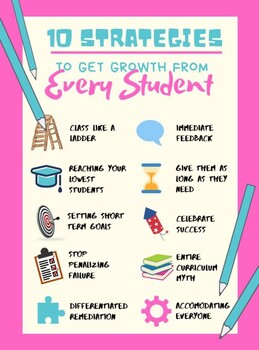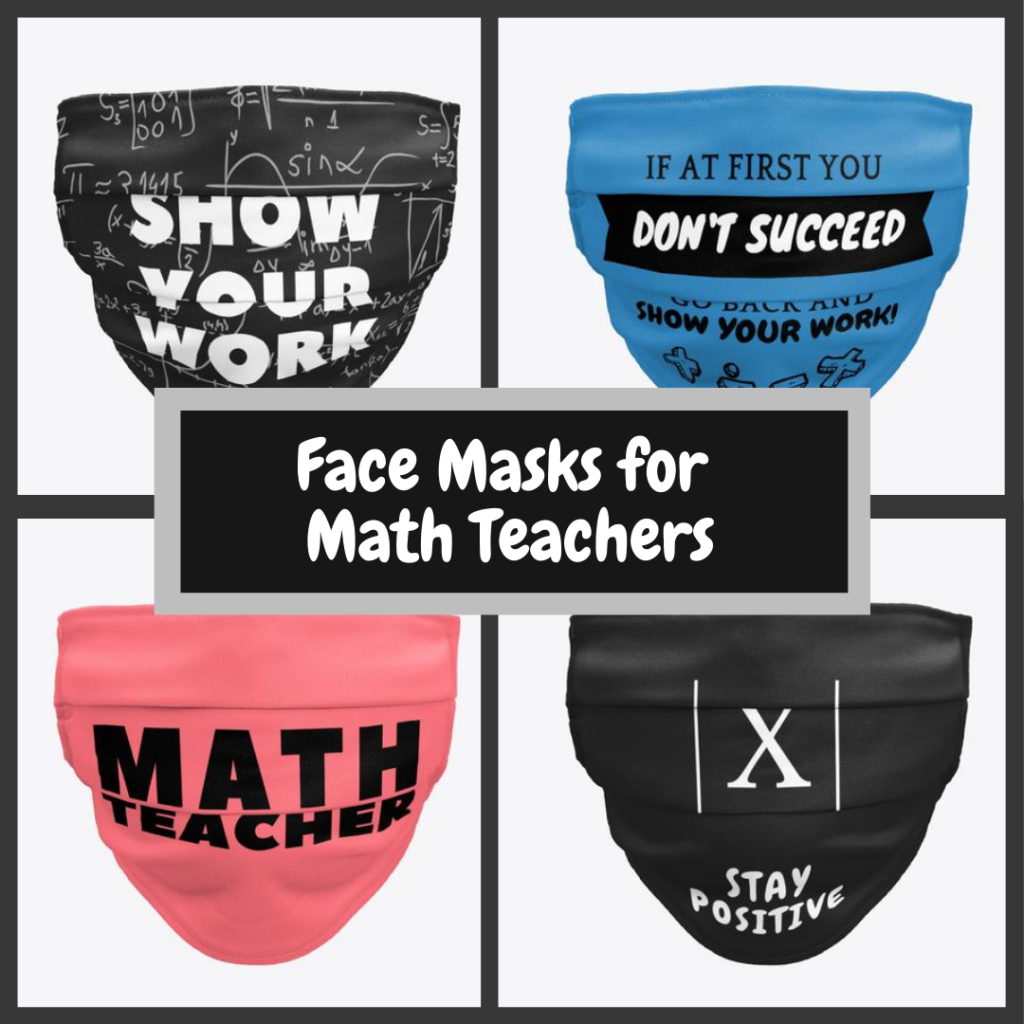5 Mistakes I was Making as a Math Teacher
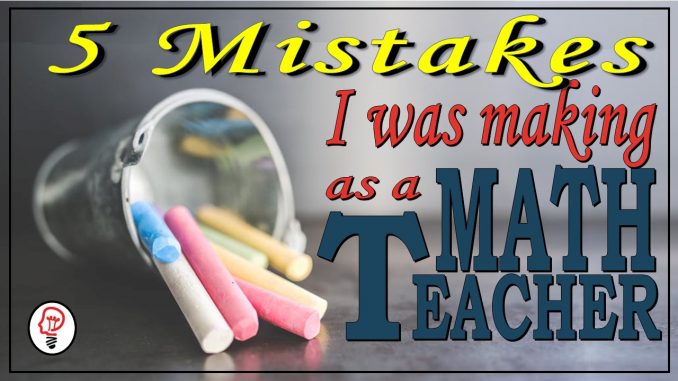
At the beginning of my math teaching career, I was not an effective teacher. At the time, I thought I was. I was a good orator and mixed in funny anecdotes to help my students comprehend the subject matter. I also did different games and math projects throughout the year. I even showed fun or funny videos that related to the material, had great powerpoint slides, and used manipulatives as often as possible.

But many of my students were not mastering the material. My weaker students fell further behind the rest of the class the deeper into the school year we traveled, while my stronger students were held back from reaching their full potential while I remediated the class.
Though I had good reviews from my superiors, these struggles were evident. I felt them and my students voiced them. At the time, I felt that their complaints about my teaching were unfounded, and based solely on their unwillingness to learn. But I now see that I was not putting them in a good position to learn because I was making these five mistakes.
Each mistake listed below links to an article on that topic
1) I penalized my students' failure but didn't actually expect them to master what I was teaching
2) I wasn't providing instant feedback
3) I didn't give my students as long as they needed to master a topic
4) I wasn't celebrating my students' success
5) I focussed on getting through the entire curriculum instead of focussing on student growth
How it affected my students
When I was finally removed from my teaching position, despite my very good evaluations, I was forced to consider these failures and how they were impacting my students. I realized that I wasn't reaching most of the students; and that may have been what was causing much of the misbehavior, resentment, and complaints that were occurring in my room.
When I finally corrected all these errors, classroom management became so much easier. Students were engaged because they were being appropriately challenged. They enjoyed the class because they could see their success and we celebrated their accomplishment. And they started to believe in me because I was no longer penalizing them for their failures.
What about you?
I bet that you are struggling with some of the things outlined in the section above: student apathy, their sentiments towards the class (or you), or classroom management. It may stem from the fact that you're making the same mistakes I was. But you can fix that. You can reach every student, challenge them, and get growth out of them. And when you do that, and you celebrate your students, they will start to believe in you – and realize that you and they are in this together.
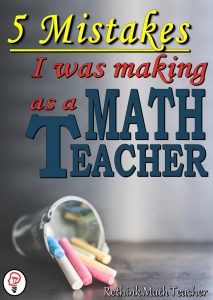
If you're finding this article helpful, save it to reference later
Math really is a foreign language
Imagine if you were plopped down in the middle of a foreign language class that you didn't understand. And the teacher was explaining how to translate sentences based on conjugation or sentence structure, but you barely could translate a few words. You would be lost, and feel like there was no hope. I'm sure you would have trouble focussing and would want to escape – so you might act up or ask to use the restroom.
This is how many of your students feel. They don't have the mathematical skills, because they never mastered the material they were supposed to in previous classes, to do the grade level work in your class. And they never will unless you remediate them.
How to Begin
Start to consider how you are going to give students as long as they need to master the skills you are teaching in your class, without holding back the other students who don't require extra time. You also need to think about how you are going to build foundational skills that those students did not master in previous classes that are preventing them from doing the grade level work.
I accomplish this through building stations on those skills, and I put each student in the station of the skill that they need to develop. They remain in that station until they master that skill, and then we celebrate their success.
This blog post is towards the end of a 10 episode journey where we are growing together to become better math teachers through differentiation and remediation. You can learn more about the journey here.
This journey will equip you with 10 free resources – inside of 10 emails with 10 helpful strategies – to help you reach all of your students and stop making the five mistakes listed above.
Click here to begin the Journey
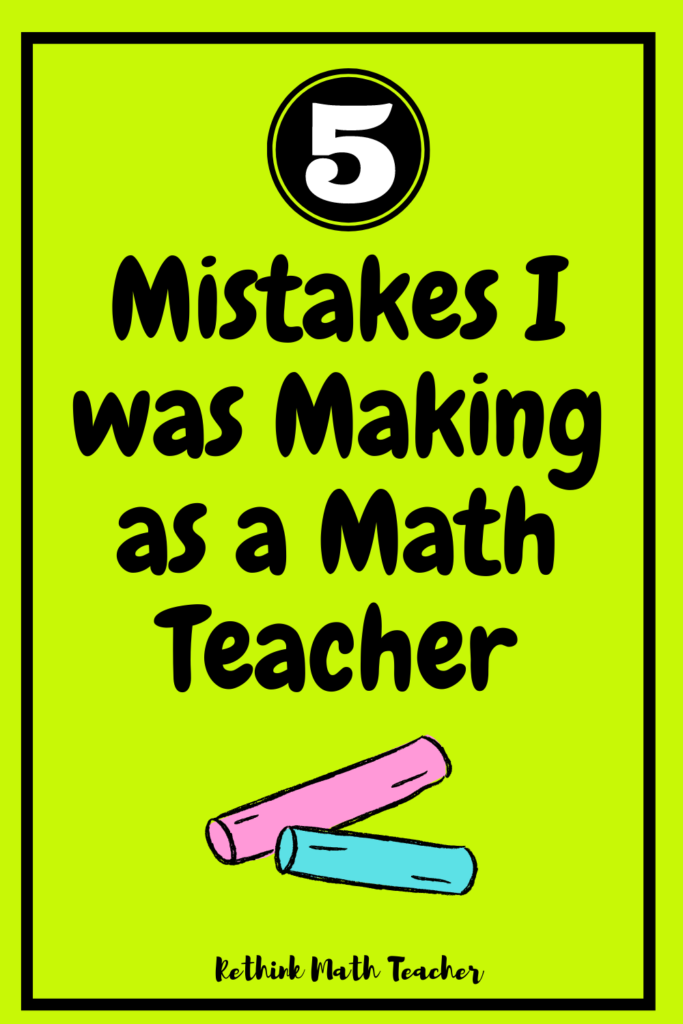
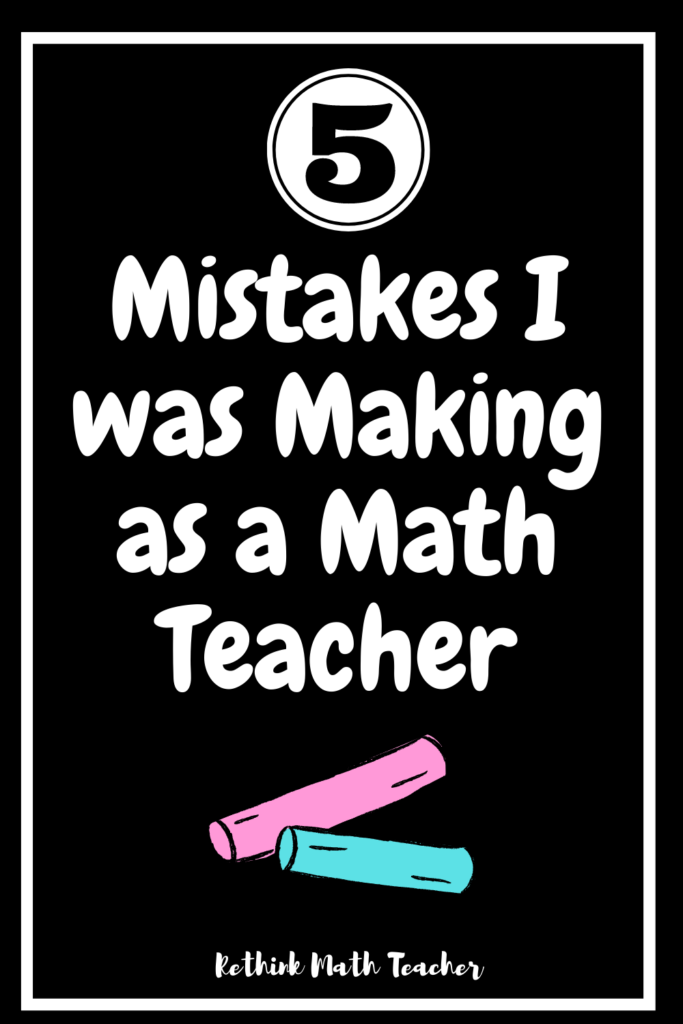
What to Read Next
1) I penalized my students' failure but didn't actually expect them to master what I was teaching
2) I wasn't providing instant feedback
3) I didn't give my students as long as they needed to master a topic
4) I wasn't celebrating my students' success
5) I focussed on getting through the entire curriculum instead of focussing on student growth
